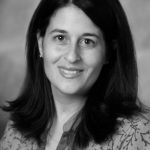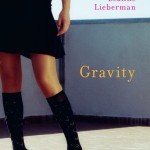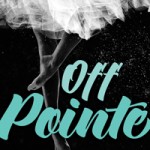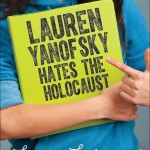
YA author
Young adult writers grapple with the conflicts associated with the tumultuous teenage years. Many, like today’s author, Leanne Lieberman, rely on their own personal experiences to craft their creative stories. Leanne also sprinkles in a few Jewish elements into the mix. Thus, her engaging stories are geared toward Jewish and non Jewish audiences who are interested in powerful female characters. Today, Leanne will share information about her writing and her thoughts about Holocaust literature for children and young adults.
Anyone who posts a comment on this blog by March 15, 2015 will be entered into a drawing for a copy of Lauren Yanofsky Hates the Holocaust.
Welcome Leanne.
Your website bio states that you have degrees from McGill University, Queen’s University, and an MA from the University of Windsor. Did any of these educational experiences enhance your writing career?
My MA from the University of Windsor was in English and Creative Writing and it directly contributed to my writing career. Not only did I get an entire year to focus on my craft, my master’s thesis became my first novel, Gravity. I became a really good critical reader of my own work and others’ work that year.
To date, you have published 4 Young Adult books (Off Pointe, Lauren Yanofsky Hates the Holocaust, The Book of Trees, and Gravity.) All include powerful female characters. What has fueled your passion to write for this particular audience? What steps do you take to connect with today’s youth?
When I started writing I didn’t realize that I was writing for a Young Adult audience. I only knew that I had a teenage character with a compelling problem. Once I realized that my writing was particularly well-suited to teenagers, it became easier to focus on what kind of stories I wanted to write. The teenage years are such an interesting time, with so much room for growth and development, as well as possibilities for enormous mistakes and also real successes. Also, my teenage characters are freer than my adult characters who have the responsibilities of work and families to hem them in.
I stay in touch with young people through my work as a French teacher. I’m with teens regularly, so I’m aware of some of their interests and concerns. However, most of my inner thinking about characters comes from my own memories of being a teenager.
Writers collect their ideas from a wide variety of sources. Where do you cultivate your ideas? Are any of your characters based on your past experiences?
Many of my ideas come from a problem or situation that I have felt confused, frustrated or angry about. So far, these feelings have largely been fueled by Jewish questions or frustrations. For example, when my younger brother told me he was gay, we were walking in a very religious neighborhood outside of Jerusalem. I started thinking about how my family would have reacted to his homosexuality if our family was less open, or more religiously fundamentalist. This led me to start imagining Ellie, a character who is gay but also loves being Jewish. So Ellie isn’t based directly on my own experiences, but on a situation I’ve thought about in relationship to my family.
The writing process involves multiple steps. Do you enlist the aid of a writing group or special readers to assist in your editing/revising process?
I have the most wonderful writing group that I met through the Writer-in-Residence program at the Toronto Public Library about fifteen years ago. I no longer live in Toronto but I still read for my group, and they still give me feedback on my work. I’ve also asked friends to read a manuscript for specific purposes. My Japanese friend Nanae recently read through a novel I’m hoping to publish soon, called (un)Lucky, because it has lots of Japanese references I wanted to make sure were correct. Nanae was very helpful in fixing my spelling.
Authors wear multiple hats. In addition to writing and editing, they need to find time to market their work. Can you share 3 marketing resources that have helped you reach your youthful audience?
I’m not sure I’ve been that successful with my marketing, although I do make an effort to maintain a presence on the web through social media and by writing a blog (leannelieberman.blogspot.ca). I have tried creating ads on Facebook, but my most recent add for Lauren Yanfosky Hates The Holocaust was not a success. I specifically tried to target young readers, girls in particular, yet the only people who “liked” my page were older people who I am pretty certain linked hating the Holocaust with denying the Holocaust. (!) I still don’t know how this happened! I had more success with the book blog tour a publicist set up for me.
Life is filled with lessons learned. After successfully publishing 4 books, is there anything that you wish you had done differently?
My writing and publishing journey has been long and satisfying so far. If I could figure out how to write interesting novels that ask interesting Jewish questions with strong female characters AND are best-sellers, I would do that.
Books that focus on a particular lifestyle such as dancing can be narrow in scope. Did you rely on your firsthand experiences or did you research the ins and outs of dance? What steps did you take to make the inner messages appeal to a wider audience?
I danced all throughout my childhood, teenage and university years, so the experience of dancing was very close to my heart. (I wasn’t ever a serious ballet student so I had to research some of the dance steps.) However, I don’t remember my dance days as being fraught with tension or drama, so I had to create friction myself. I think that’s where the universal appeal of the book comes in. Everyone has some experience of conflict while trying to work with other people, whether in dance or in another social situation.
The teenage years are filled with many challenges. What do you hope your readers will learn from Meg’s experience at dance camp?
Meg is a very fearful person. She wants to be a professional dancer so badly she ignores other opportunities for learning in life. I hope readers will see that Meg grows from her learning experiences and that they will take all the available opportunities to them.
Book titles can have both a positive and negative affect on readers. What prompted you to select the title- Lauren Yanofsky Hates the Holocaust?
Like Lauren, I grew up reading and learning a lot about the Holocaust. My father is an amateur Holocaust historian and involved with the Vancouver Holocaust Society. I used to read a lot of Holocaust literature but at some point in my twenties I decided that I had read enough about it, and that I didn’t want it to be the defining element of my Judaism. I imagined a character, like me, who was sick of hearing about the Holocaust, but couldn’t help having it be part of her life. So, Lauren hates the Holocaust both for the obvious reason that it killed millions of people, and because of the way it influences her life.
The Holocaust is an emotionally charged topic that elicits a wide variety of responses. The conflicts presented in Lauren Yanofsky Hates the Holocaust confront many controversial issues. After reading the book, what do you hope your audience will learn about tolerance?
I hope that readers will be careful with their actions and their words, acknowledging the power we have to harm and help each other. The boys in Lauren Yanofsky who offend Lauren by making Nazi armbands are genuinely nice kids who are insensitive to her family background. Things we say in jest can easily hurt others feelings, especially when we comment on people’s cultural or religious backgrounds or sexual orientation.
Most Jewish readers will start with more background information than non-Jewish readers. Do you anticipate that this dichotomy will affect your readers’ perspective?
I am careful to write my books so that both Jewish and non-Jewish readers can enjoy them. I try to include enough contextual information so that Jewish terms can be understood within the flow of text, without disturbing the story. Still, I imagine that my books resonate differently for Jewish readers and that some of the topics in my books are things that are part of their life experiences. I hope Jewish teens read my books with a sense that part of their lives are being reflected back to them, just the way I experienced as a young reader when I encountered the works of Sydney Taylor or Chaim Potok.
Holocaust education varies from place to place. At what age should children be exposed to the horrors of the Holocaust? Should all high school curriculums include a unit on the Holocaust?
I’m thinking that Holocaust education should begin in middle school or Junior High. I might re-think this in the next couple of years, as I am the mother of two young boys and I dread explaining the Holocaust to them, and my own family’s loss from the Nazis. Perhaps if my boys are curious at a younger age, the Holocaust might be something we talk about in my family sooner.
My grade seven and eight students at the school I teach at will be learning about the Holocaust this spring as part of a historical fiction unit, and they seem interested and mature enough to grapple with the immensity of the Holocaust.
I don’t believe all high school curriculums should include a unit on the Holocaust in particular. I think students should study World War Two, in which the Holocaust plays a part. But I think your questions goes deeper. The Holocaust is not the only atrocity to take place in history. There have been many other mass killings, mainly in the last century. I don’t believe the Holocaust should take precedence over other atrocities. Students can equally learn tolerance from the Armenian Genocide as they can from the destruction by Pol Pot or Stalin.
Are you currently working on your next book? If so, can you share any information or an anticipated publication date?
My next YA novel is called Feast. It’s about a very shy girl named Sydney whose sister wants to put on the play The Vagina Monologues at her school. Sydney is initially mortified that her sister wants to talk about ‘girl parts’ in public, but her sister’s theater and subsequent activism forces Sydney to re-think her sexuality. The book also has some Jewish themes, in particular it looks into intermarriage and the role activism plays in Judaism. Feast is scheduled to come out in 2017.
Leanne, is there anything else that you would like to share with my readers?
I’d love to tell your readers that they should write to an author whose books they admire. I try and let writers know when I love their books, either with a quick tweet or an email. Authors love to hear from their readers and know that their books are being read and enjoyed.
Leanne, thanks for dropping by. I look forward to reading your next book.
Book Review
Later this week, I will be reviewing Lauren Yanofsky Hates the Holocaust and Off Pointe.
Book Giveaway
Anyone who leaves a comment on this blog by Sunday, March 15, 2015 will be eligible for a book giveaway. Leanne will send the randomly selected North American winner an autographed copy of Lauren Yanofsky Hates the Holocaust.
In exchange for an honest interview and review, I was sent a copy of Lauren Yanofsky Hates the Holocaust and Off Pointe .
Related Blogs
Q & A with Aylesworth and McClintock
Q & A with Martha Seif Simpson
Q & A with Ruth Tenzer Feldman
Sandra’s Bio
Sandra Bornstein is the author of MAY THIS BE THE BEST YEAR OF YOUR LIFE. It is available on Amazon. Sandra’s memoir highlights her living and teaching adventure in Bangalore, India. She is a licensed Colorado teacher who has taught K-12 students in the United States and abroad as well as college level courses. Sandra is married and has four adult sons. The memoir was a finalist in the Travel category for the 2013 Next Generation Indie Book Awards, the 2013 International Book Awards, the 2013 National Indie Book Excellence Awards, the 2013 USA Best Book Awards, and received an Honorable Mention award in the Multicultural Non-Fiction category for the 2013 Global ebook Awards.



Leave a Reply
You must be logged in to post a comment.